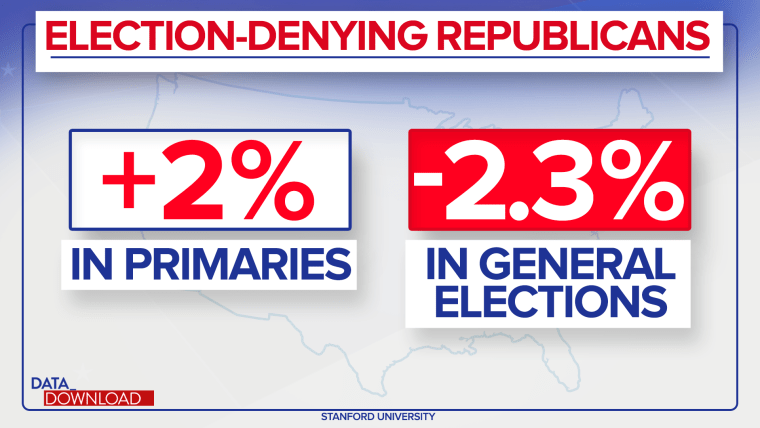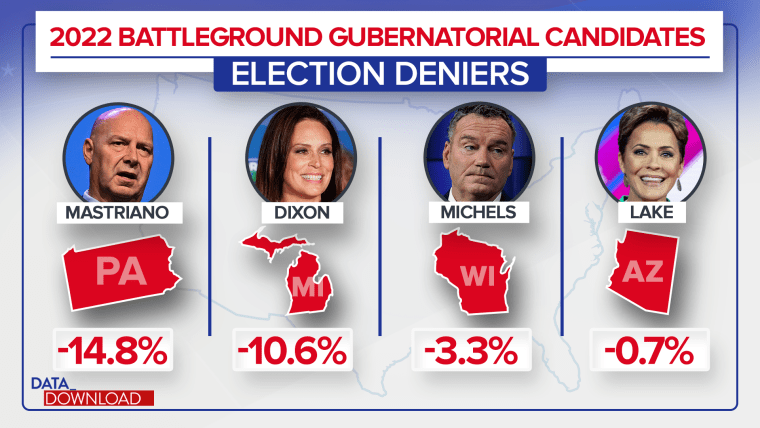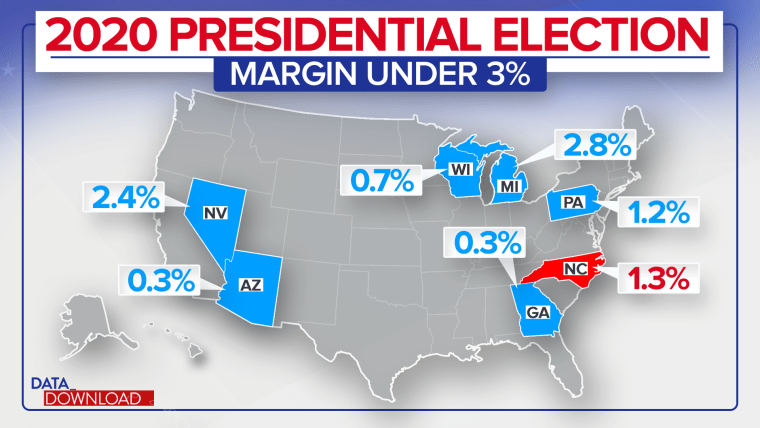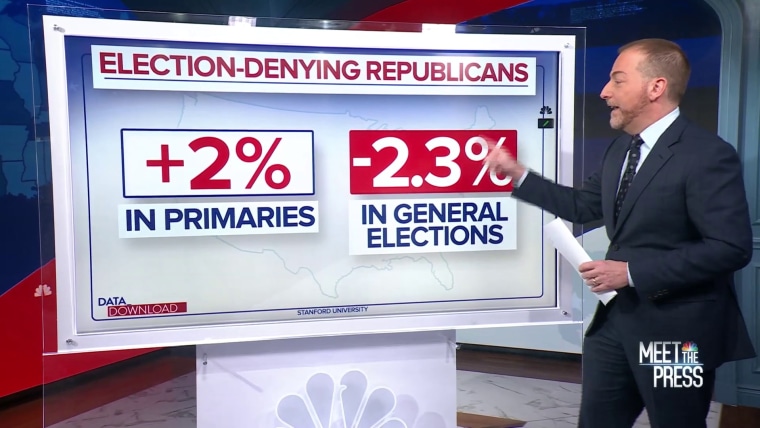WASHINGTON — As the Republican Party gears up for the 2024 presidential race, there’s a large image in the rearview mirror that refuses to go away: The 2020 presidential election.
About a week ago, the Colorado GOP selected a 2020 election denier to lead for the next two years, a few weeks after Michigan Republicans selected a 2020 denier to lead their party, as well.
When a party loses a presidential election, typically it sorts through the wreckage and figures out how to move forward. The GOP, however, has not done that after the 2020 election. A paper authored by two academics from Stanford University has found that that has had consequences. It argues that refusing to move on has real impacts on the party in two important ways. First, the attitude makes Republicans more likely to nominate election deniers in primaries. And second, if and when those election-denying candidates get their nominations, they are likely to face additional challenges in general elections.
The paper specifically compared the 2022 primary and general election results for statewide Republican candidates who were and were not election deniers, finding some concrete effects.

The paper found election-denying Republicans got, on average, a bump of about 2 percentage points in primaries compared to the non-election-denying Republicans, meaning they were more likely to win the nominations. But when the general election came along, election-denying Republicans performed 2.3 points worse, on average, than Republicans who say who held, correctly, that Joe Biden won the presidency in 2020.
In 2022, you could see those dynamics at play in governor’s races that featured open Republican primaries in the country’s most important political swing states: Arizona, Michigan, Pennsylvania and Wisconsin.

Although Biden won those states in 2020, in each one Republicans chose an election denier for governor — and that candidate lost in each state in November.
Depending on the race, the 2.3 points election deniers underperformed by in 2022 could have made a difference.
It doesn’t look like the Republican candidates’ election denial position was the deciding factor in Michigan and Pennsylvania, because the margins of defeat were so large. In those states, Democrats Gretchen Whitmer and Josh Shapiro won by double digits, defeating Republicans Tudor Dixon and Doug Mastriano, respectively.
But in Arizona and Wisconsin, 2.3 points could have been crucial. In Arizona, Democrat Katie Hobbs beat Republican Kari Lake by less than a single point. And in Wisconsin, Democratic incumbent Tony Evers defeated Republican Tim Michels by a little more than 3 points. If a handful of those voters had flipped Republican, Michels could have won.
To be clear, campaigns are complicated, and they are generally about more than one issue, even if it is denying the reality of a previous election. Candidates matter. The individual political terrains in each state matter. Funding and donations matter. When candidates lose by double digits, as in Michigan and Pennsylvania, there are many reasons.
But most races aren’t blowouts, particularly in battleground states. Consider the 2020 presidential race and the margins of victory in the states that wound up deciding it: Arizona, Georgia, Michigan, Nevada, North Carolina, Pennsylvania and Wisconsin.

In all those states, the margin of victory in the 2020 presidential race was less than 3 points — very narrow. So narrow, in fact, that flipping 2.3% of the vote (the net impact of nominating an election denier, according to the analysis) from one candidate to another in any of them would have changed the outcomes in the states and ultimately the national electoral tally.
Of course, the paper’s effects were measured in a midterm year, and the impact could be different if the candidate at the top of the ticket is at the center of the false election narrative of 2020. That could be the case if former President Donald Trump secures the 2024 nomination. But judging by the results, 2022 certainly could be viewed as offering a cautionary note for the GOP.
In a sense, the data suggest the Republican Party finds itself trapped in a box of its own creation. Candidates might choose the false election denial stories to fire up primary voters, but if the candidates win the nominations, those stories seem to be a detriment to the larger voting public in general elections.
The broader lesson is familiar in political circles. Elections are generally about the future. Spending too much time staring into the rearview mirror, particularly when one is pushing false narratives, doesn’t seem to be a way to grow support.
